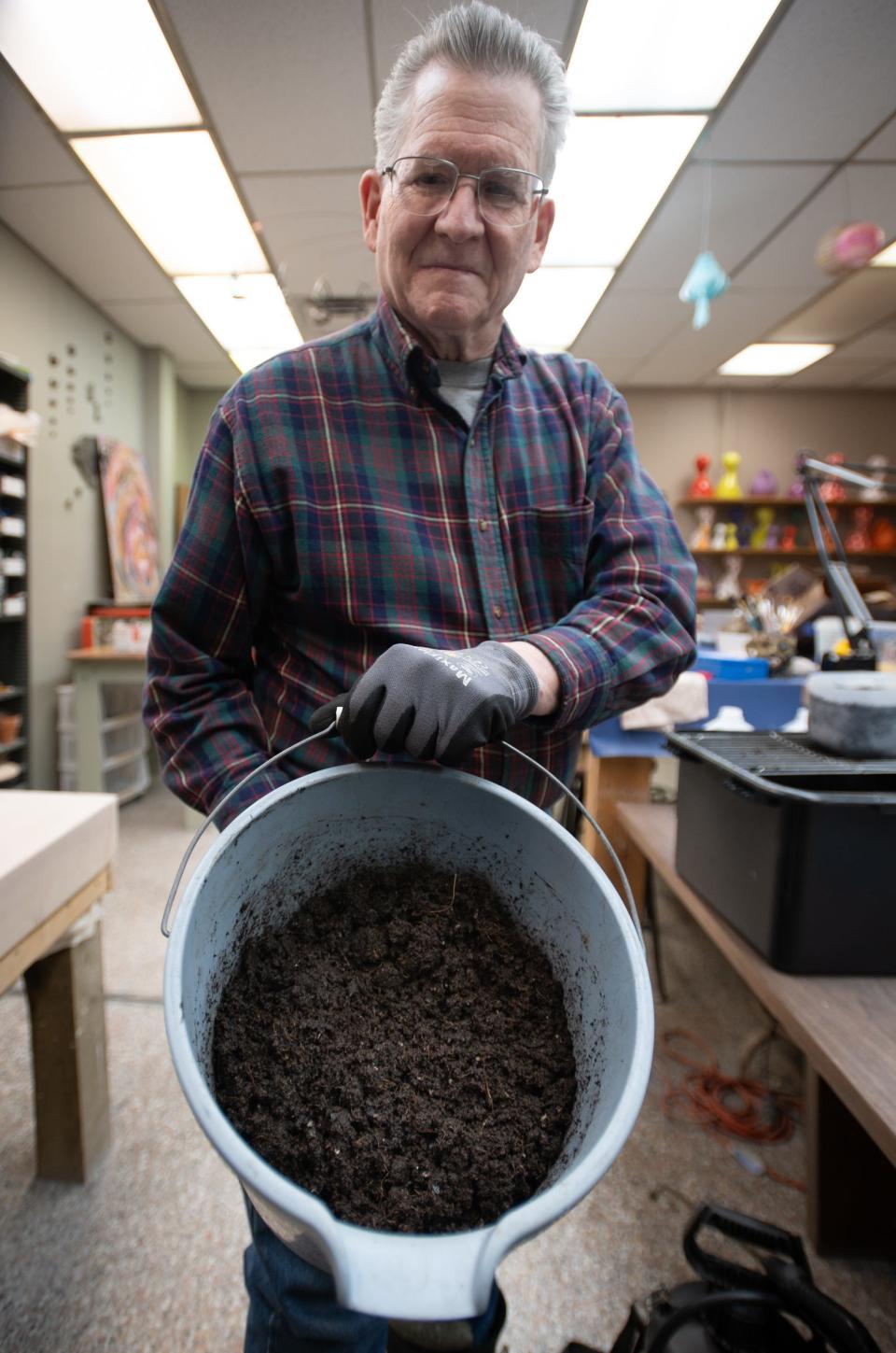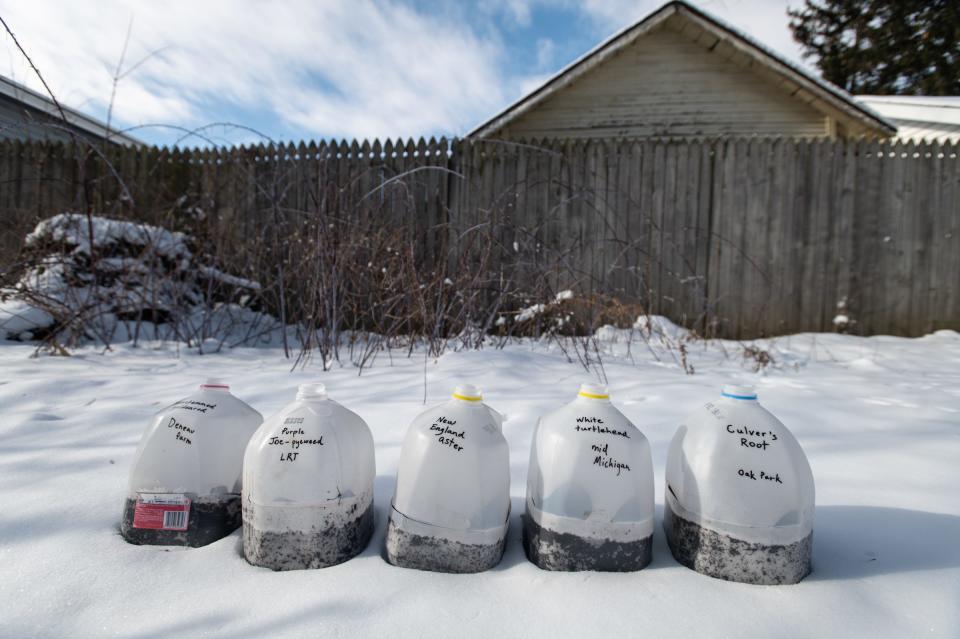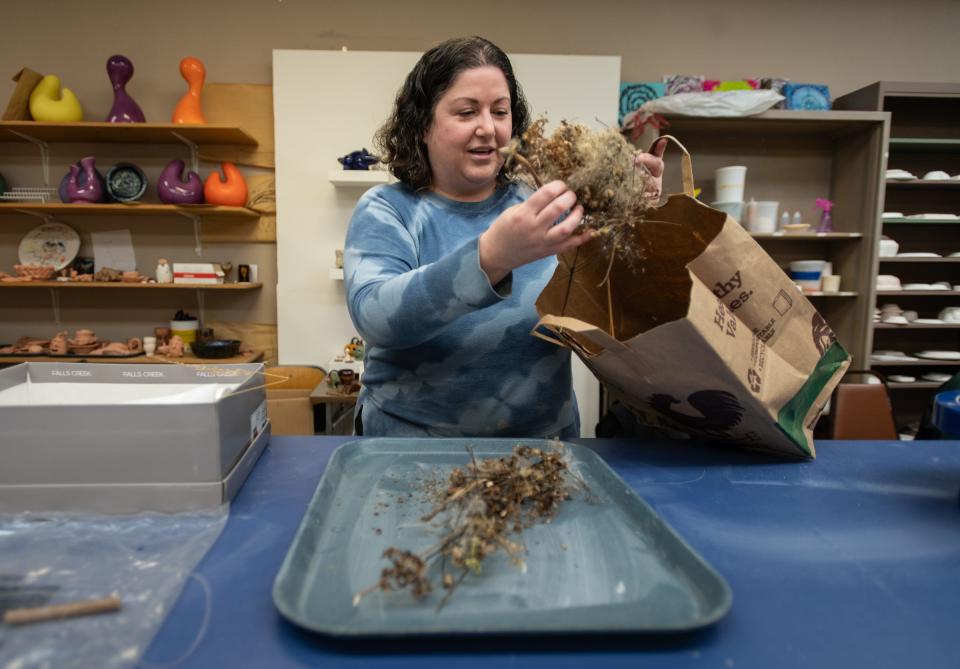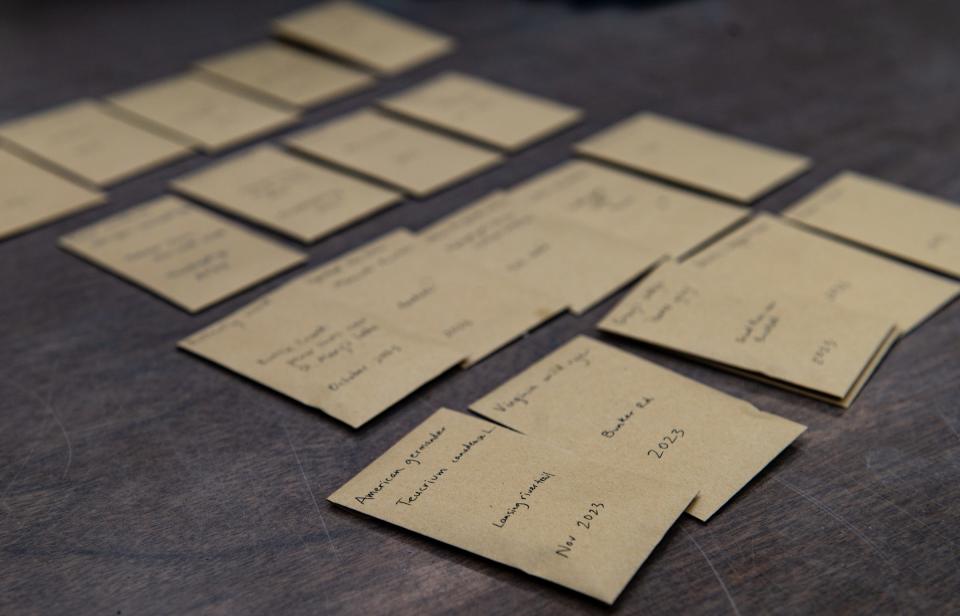Start gardening right now. Here's how
LANSING — You can start your garden this weekend.
And yes, this is intended to be read by people in Michigan.
And yes, there is still snow on the ground and your sub-zero gear may still be next to the door.
And yet, a milk jug greenhouse can help get a native plant garden started this weekend.

With a long history of success, especially for Michigan's native plants, it's known as winter sowing. Classes are happening in Lansing this weekend, teaching how to garden outdoors while it's still cold.
Abby Deneau, an advocate for local planting, is hosting an open training session at 1 p.m. Saturday in Room 118 of the Foster Community Center, 200 N. Foster Ave.
Deneau grew a few dozen of the one-gallon greenhouses last year and is grateful for the current cold and the snow, because it will help make the young plants hardier when they finally sprout. She will be teaching people how to transform milk jugs into little gardens and how to work with the native seeds, which are critical to the winter sowing.
Native seeds are evolved to grow in the cold and snow of Michigan, just like they would in a forest in a spot where a turkey or something else cleared a path through leaves and into the soil.
"(The seed) needs contact with the soil and keeping the milk jug outside can replicate the conditions native seeds need," Deneau said. "It serves to protect the seeds, so (it) won’t get washed away or get eaten by animals."

There could be some surprises in store.
"By the end of your first year, you may get caterpillars. I got Monarch butterflies in my first year," Deneau said.
The milk jug greenhouses likely won't work with most typical backyard vegetables like tomatoes that come from seed packets at a big box store, because those tend to not be native species, said Egypt Krohn, director of the Hunter Park GardenHouse, a year-round farm and urban gardening center that includes a greenhouse at the Allen Community Center.
So finding the right native plants will make all the difference in being able to start a garden outside in January, Krohn said.
The GardenHouse is hosting a session with experts teaching about native seed saving for beginners at 10 a.m. Saturday at the GardenHouse, 1400 E. Kalamazoo St., with a suggested donation.

Two of Krohn's favorite natives are the butterfly milkweed and the tall coreopsis (Coreopsis tripteris). The butterfly milkweed is less aggressive than the common milkweed and more suited for household ornamental gardens while still helping butterflies and native insects, Krohn said. And tall coreopsis is a beautiful flower and her favorite, a bit more of a pale yellow color than a Black-eyed Susan, she said.
The GardenHouse has a free seed library, where people can get native seeds for their own milk jug greenhouses, propagation trays or indoor setups. The garden's own native planting is largely done during the fall, and they don't usually do milk jugs because they have a full greenhouse but many of the gardeners do winter sowing at their own homes, Krohn said.
There will be other training sessions at the GardenHouse on Saturdays for the next several months, and people who want to get really serious about gardening can join a 13-week program and earn an urban gardening certificate.

How to make a winter sowing milk jug greenhouse:
Take a clean milk jug or similar container, cut it nearly all the way around near the handle so it can flap open.
Poke drainage holes in the bottom - Deneau uses the heated tip of a hot glue gun - and fill with dirt or soil such as a garden mix.
Put native seeds in the top, lightly cover with soil so the seeds stay put.
Seal the container up, you can use duct tape, and leave the hole at the top open and the jug where it gets sunlight.
Monitor the jugs once a week to make sure they're not flooding or dry, water if dry.
Wait until the plants are hardy enough to be replanted, possibly in May, and you'll have early and strong native plants to kick off your gardening.
Visit www.extension.psu.edu/starting-seeds-in-winter for more detailed instructions and tips.
Contact Mike Ellis at mellis@lsj.com or 517-267-0415
This article originally appeared on Lansing State Journal: Start gardening right now. Here's how

